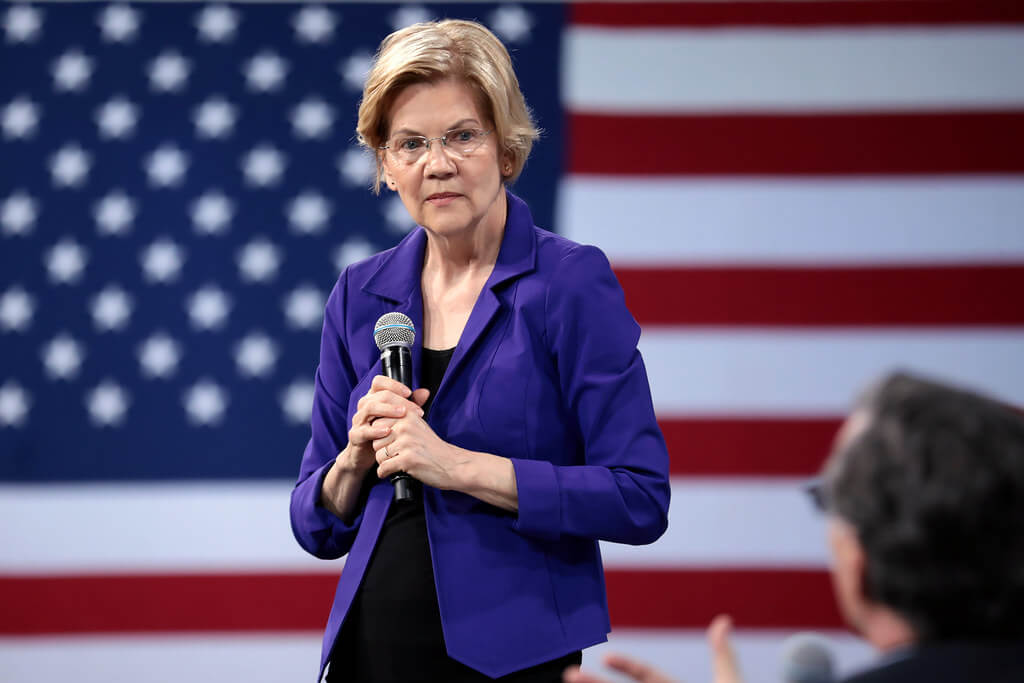U.S. Senator Pushes New Bill to Curb Corporate Influence in Government Advisory Roles
16.04.2025 14:59 2 min. read Alexander Stefanov
Concerns over unchecked influence in Washington have prompted a new legislative push to tighten ethics rules for part-time federal advisors with ties to powerful corporations.
Spearheaded by Senator Elizabeth Warren, the proposal—dubbed the SEER Act—seeks to close what critics call a glaring loophole in federal oversight.
At the heart of the issue are Special Government Employees (SGEs), individuals who can advise the federal government for limited periods each year—up to 130 days—without undergoing the same scrutiny as full-time officials. While intended to attract outside expertise, the system has drawn criticism for enabling figures like Elon Musk and crypto advisor David Sacks to shape public policy while leading private companies that stand to benefit from government contracts.
Under current rules, many SGEs avoid detailed financial disclosures unless they cross certain pay thresholds. The SEER Act would impose tighter regulations beginning on their 61st day of service, ultimately barring them from collecting outside income tied to their corporate roles once they reach the 130-day mark.
The legislation would also prevent SGEs from interacting with federal agencies that regulate or fund their companies. All waivers for potential conflicts of interest would need approval from the Office of Government Ethics and be made publicly available. A new federal database would track every SGE, detailing their time in service and the nature of their advisory work.
The bill has garnered backing from a wide range of ethics watchdogs, including CREW, POGO, and Public Citizen, who argue that increased transparency is long overdue. If enacted, the SEER Act would introduce one of the most significant overhauls in part-time government advisory ethics in years, curbing behind-the-scenes influence from business moguls while boosting public accountability.
-
1
Russia Hits Pause on Expanding Crypto Mining Restrictions
07.06.2025 11:00 1 min. read -
2
U.S. State of Connecticut Blocks Crypto from Public Sector Operations
12.06.2025 16:00 1 min. read -
3
Federal Reserve Clears Path for Banks to Enter Crypto Market
24.06.2025 8:00 2 min. read -
4
Vietnam Charts a Clear Course for Digital Assets With New 2026 Law
16.06.2025 18:00 1 min. read -
5
GENIUS Act Clears Senate, Setting Stage for First U.S. Crypto Law
18.06.2025 12:00 1 min. read
Europe’s Largest Euro-Denominated Spot Crypto Exchange Secures License Under MiCA
Bitvavo, Europe’s largest euro-denominated spot crypto exchange, has officially received a MiCA license from the Dutch Authority for the Financial Markets (AFM), allowing the firm to operate across all 27 European Union member states.
U.S. Crypto Investors Hit by IRS Letter Surge as Tax Crackdown Looms
In just two months, crypto tax platform CoinLedger observed a staggering 700% surge in the number of U.S. users receiving IRS warning letters, signaling a sharp escalation in federal tax enforcement targeting digital asset holders.
Ripple Drops Cross-Appeal, Moves to End SEC Case “Once and for All”
Ripple CEO Brad Garlinghouse announced Friday that the company is officially dropping its cross-appeal in its long-running legal battle with the U.S. Securities and Exchange Commission (SEC), signaling a final move toward ending the years-long case.
Gemini Launches Tokenized MicroStrategy Stock for EU Users
Cryptocurrency exchange Gemini has announced the launch of tokenized MicroStrategy (MSTR) stock for customers in the European Union, enabling onchain access to one of the most prominent Bitcoin-related equities.
-
1
Russia Hits Pause on Expanding Crypto Mining Restrictions
07.06.2025 11:00 1 min. read -
2
U.S. State of Connecticut Blocks Crypto from Public Sector Operations
12.06.2025 16:00 1 min. read -
3
Federal Reserve Clears Path for Banks to Enter Crypto Market
24.06.2025 8:00 2 min. read -
4
Vietnam Charts a Clear Course for Digital Assets With New 2026 Law
16.06.2025 18:00 1 min. read -
5
GENIUS Act Clears Senate, Setting Stage for First U.S. Crypto Law
18.06.2025 12:00 1 min. read


